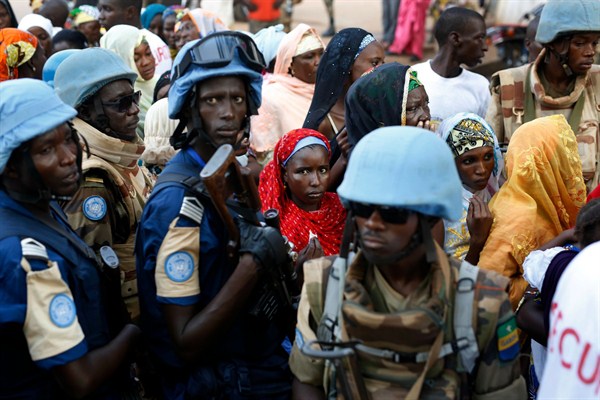Birthday parties can be moments for both celebration and introspection. While it may be fun to mark life’s milestones, they can inspire soul-searching about the meaning of aging. There were understandably mixed feelings at the United Nations last week, as the organization marked peacekeeping’s 70th birthday.
The Security Council sent military observers to the Middle East in 1948 to supervise the end of the first Arab-Israeli war. Pedants can debate whether this represented the birth of peacekeeping—the interwar League of Nations had deployed multinational forces—but it was the first of over 70 U.N. missions that have become the organization’s trademark. U.N. officials used this year’s anniversary to honor the efforts of today’s peacekeepers to finish wars and protect civilians. But the overall mood in New York was sober.
This was because, as I noted in a survey of peacekeeping missions for the Center on International Cooperation last week, U.N. operations appear to be entering a new and difficult phase. Over the past two decades, U.N. forces have done a solid if underreported job stabilizing small and medium-sized countries such as Sierra Leone and East Timor. Earlier this year, they wrapped up another broadly successful mission in Liberia.

